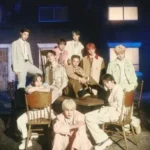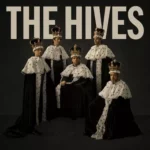Marina Sena – Sem Lei Lyrics
[Letra de “Sem Lei”]
[Verso]
Eu mandei flores no jantar, só você não viu
Mensagem no seu celular, só que você não viu
Fiz um tema pra te ver dançar, e você não ouviu
Tanta coisa que eu ia contar, só que você sumiu
Sei que não é tão popular um violão, um rio
Você parece que só quer viver no raso
Você parece que não quer me ver descalço
É que meu jeito é totalmente natural, baby
[Refrão]
E tudo que eu sei é que o tempo para, passa, pisa no tempo do Rei
E tem também: nem tudo quе paga, paga a brisa de viver sem lеi
E tudo que eu sei é que o tempo para, passa, pisa no tempo do Rei
E tem também: nem tudo que paga, paga a brisa de viver sem lei
[Verso]
Eu mandei flores no jantar, só você não viu
Mensagem no seu celular, só que você não viu
Fiz um tema pra te ver dançar, e você não ouviu
Tanta coisa que eu ia contar, só que você sumiu
Sei que não é tão popular um violão, um rio
Você parece que só quer viver no raso
Você parece que não quer me ver descalço
É que meu jeito é totalmente natural, baby
E tudo que eu sei é que o tempo para, passa, pisa no tempo do Rei
E tem também, nem tudo que paga, paga a brisa de viver sem lei
E tudo que eu sei é que o tempo para, passa, pisa no tempo do Rei
E tem também, nem tudo que paga, paga a brisa de viver sem lei
Marina Sena – Sem Lei
Song Details
- Title: Sem Lei
- Artist: Marina Sena
- Genre: Brazilian Pop, MPB (Música Popular Brasileira)
- Release Year: 2022
- Language: Portuguese
- Themes: Love, Freedom, Disillusionment, Natural Living
- Mood: Dreamy, Melancholic, Reflective
In-Depth Lyric Analysis
Verse 1
- “Eu mandei flores no jantar, só você não viu”
This opening line sets the tone of unreciprocated affection. The narrator puts effort into romantic gestures, but the other person remains indifferent. Flowers at dinner symbolize care and devotion, but they go unnoticed, emphasizing emotional distance. - “Mensagem no seu celular, só que você não viu”
The frustration deepens—the narrator tries to reach out through modern means (a message), yet again, they are ignored. This highlights one-sided communication and emotional neglect. - “Fiz um tema pra te ver dançar, e você não ouviu”
Here, the act of composing a song represents personal expression and vulnerability. The fact that the other person doesn’t listen suggests that they fail to appreciate or value the narrator’s emotions. - “Tanta coisa que eu ia contar, só que você sumiu”
The phrase “você sumiu” (you disappeared) reinforces abandonment and emotional distance. The narrator was eager to share their world but was met with silence and detachment. - “Sei que não é tão popular um violão, um rio”
This line contrasts authenticity vs. modern superficiality. A guitar (violão) and a river (rio) symbolize simplicity, nature, and artistic sensibility—things the narrator values but the other person seemingly does not. - “Você parece que só quer viver no raso”
The word “raso” (shallow) suggests that the other person is uninterested in deep emotional or intellectual connections. The narrator craves depth and sincerity, but their partner appears to prefer superficiality and detachment. - “Você parece que não quer me ver descalço”
Walking barefoot (descalço) represents freedom, authenticity, and a connection with nature. The other person doesn’t seem to appreciate or embrace this lifestyle, creating a philosophical and emotional disconnect. - “É que meu jeito é totalmente natural, baby”
This line reinforces the contrast between natural simplicity vs. materialistic or detached living. The narrator is at peace with their own essence, but the relationship lacks alignment.
Chorus (Refrão)
- “E tudo que eu sei é que o tempo para, passa, pisa no tempo do Rei”
The phrase “o tempo para, passa” (time stops, time passes) captures a paradoxical view of time—love can make moments feel eternal, yet life inevitably moves forward.- The reference to “o tempo do Rei” (the time of the King) is possibly an allusion to Brazilian musical icon Jorge Ben Jor, whose song “O Dia Que o Sol Declarou o Seu Amor Pela Terra” speaks of cosmic and timeless love. This could symbolize a desire for something grand and timeless, rather than fleeting connections.
- “E tem também: nem tudo que paga, paga a brisa de viver sem lei”
- “Nem tudo que paga, paga” (not everything money buys is worth it) critiques materialism and conventional success.
- “A brisa de viver sem lei” (the breeze of living without rules) implies a carefree, spontaneous, and liberated lifestyle, one that cannot be bought or constrained by societal expectations.
Verse 2 (Repetition of Verse 1)
The repetition reinforces the disillusionment and emotional exhaustion. Despite efforts to connect, the distance remains unchanged. This cyclical structure highlights the stagnation of the relationship—no matter what the narrator does, their partner remains indifferent.
Song Meaning
“Sem Lei” is a song about love, disappointment, and the struggle between authenticity and superficiality. The lyrics depict a narrator who deeply values emotion, art, and freedom, but their partner fails to recognize or reciprocate these values.
- The contrast between “violão e rio” vs. superficiality reflects a deeper societal divide between materialism and spiritual or artistic fulfillment.
- The theme of unreciprocated effort speaks to many who have loved someone emotionally unavailable or indifferent.
- The line about living “sem lei” (without rules) suggests that true fulfillment comes from embracing freedom and rejecting rigid societal norms.
Ultimately, the song is a melancholic realization that some relationships cannot flourish when two people value life in fundamentally different ways.
FAQs (Frequently Asked Questions)
1. What does “Sem Lei” mean?
“Sem Lei” translates to “Without Law” or “Lawless”, but in this context, it refers to living freely, without societal constraints or artificial expectations. It conveys a spirit of spontaneity and authenticity.
2. What is the main theme of the song?
The song explores unreciprocated love, emotional distance, and the contrast between authenticity and superficiality. It’s about loving someone who doesn’t share the same depth of feeling or appreciation for simple, natural pleasures.
3. What does “nem tudo que paga, paga a brisa de viver sem lei” mean?
This phrase suggests that money can’t buy true happiness or the freedom of living without societal expectations. The “brisa de viver sem lei” represents a state of carefree, natural living.
4. What does “o tempo para, passa, pisa no tempo do Rei” mean?
This poetic line reflects how love can make time feel both infinite and fleeting. The mention of “tempo do Rei” could be a reference to timeless Brazilian music, possibly Jorge Ben Jor, symbolizing a longing for something more profound and eternal.
5. Why does the song repeat the first verse?
The repetition emphasizes the narrator’s frustration and exhaustion—they keep giving and expressing love, but the other person remains emotionally unavailable.
Conclusion
“Sem Lei” by Marina Sena is a beautifully melancholic and poetic reflection on unreciprocated love, the clash between deep emotions and superficiality, and the longing for freedom and authenticity.
Through evocative imagery of flowers, music, and nature, the song highlights the narrator’s genuine and heartfelt love, which goes unnoticed by someone who prefers to “live in the shallow”. The reference to “viver sem lei” suggests that true happiness comes from embracing spontaneity, rather than conforming to rigid expectations.
This song resonates deeply with those who have felt misunderstood in love, especially when they value art, passion, and depth while the other person remains distant.
Ultimately, “Sem Lei” is not just a love song—it’s an ode to self-expression, freedom, and the beauty of being unapologetically oneself.

















Leave a Reply